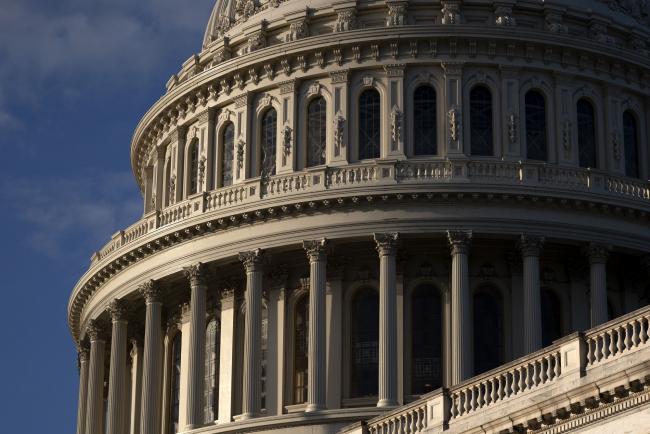Pelosi, Schumer Back Using Bipartisan Plan in Stimulus Talks

(Bloomberg) — House Speaker Nancy Pelosi and Senate Democratic leader Chuck Schumer Wednesday threw their support behind using a $908 billion bipartisan stimulus proposal as the foundation for a new round of negotiations with congressional Republicans and the White House.
Their endorsement of the plan drawn up by a group of House and Senate lawmakers as a basis for a deal marks the first public retreat from their backing of a much larger $2.4 trillion pandemic relief package — and could break six months of stalemate in time to get a bill passed before the end of the year.
“While we made a new offer to Leader McConnell and Leader McCarthy on Monday, in the spirit of compromise we believe the bipartisan framework introduced by senators yesterday should be used as the basis for immediate bipartisan, bicameral negotiations,” Schumer and Pelosi said in a statement, referring to Senate Majority Leader Mitch McConnell and House Minority Leader Kevin McCarthy.
The move by the two Democrats is the first real break by either side from long-held positions, and now puts pressure on McConnell and the GOP. While McConnell has recently been marketing a plan of roughly $500 billion, Republican leaders back in July backed a $1 trillion package. President Donald Trump in the past also has supported a bigger relief plan.
U.S. stocks and 10-year Treasury yields both hit their highs of the session after the news on the Pelosi-Schumer pitch. Moves were still relatively muted following pronounced gains on Tuesday in the wake of the release of the bipartisan plan.
Plan Contents
Under that bipartisan proposal, small businesses would get a roughly $300 billion infusion for a version of the Paycheck Protection Program of forgivable loans and other aid, and state and local governments would get about $240 billion, including money for schools, according to three people familiar with the proposal.
An additional $180 billion would go to an extension of pandemic unemployment benefits, providing an added $300-a-week for four months.
The proposal doesn’t include direct payments to individuals.
“The bill that has been worked on between Republicans and Democrats has the best shot of actually passing,” said Utah Republican Senator Mitt Romney, who was one of the nine senators in the bipartisan group making the proposal. “There are message bills and then there are bills that can pass, and we have to have Democratic votes to get a bill through the Senate.”
Potential Timeline
House Majority Leader Steny Hoyer earlier Wednesday expressed optimism that a deal could be reached by the weekend, to set up votes by the middle of next week.
The emergence of new proposals reflected rising concerns that the economy needs another boost amid evidence that surging Covid-19 cases are undermining the recovery as past fiscal support runs out.
The pandemic is also driving action in Congress more directly. Hoyer and other lawmakers said the continued spread of the coronavirus across the country is adding urgency to efforts to wrap up congressional business so members can return home and safely quarantine before the holidays.
Over the next 10 days, Congress also has to deal with passing a $1.4 trillion annual spending bill to fund government operations. The U.S. government has been working under a stopgap measure since the fiscal year began on Oct. 1. That expires Dec. 11, and missing the deadline would trigger a partial government shutdown.
(Updates with details on bipartisan plan, Romney remarks beginning in fourth paragraph)
©2020 Bloomberg L.P.

